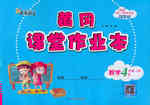题目内容
Ideas about polite behavior are different from one culture to another. Some societies, such as America and Australia for example, are mobile and very open. People here change jobs and move house quite often. As a result, they have a lot of relationships that often last only a short time, and they need to get to know people quickly. So it's normal to have friendly conversations with people that they have just met, and you can talk about things that other cultures would regard as personal.
On the other hand there are more crowded and less mobile societies where long-term relationships are more important. A Malaysian or Mexican business person, for example, will want to get to know you very well before he or she feels happy to start business. But when you do get to know each other, the relationship becomes much deeper than it would in a mobile society.
To Americans, both Europeans and Asians seem cool and formal at first. On the other hand, as a passenger from a less mobile society puts it, it's no fun spending several hours next to a stranger who wants to tell you all about his or her life and asks you all sorts of questions that you don't want to answer.
Cross-cultural differences aren't just a problem for travelers, but also for the flights that carry them. All flights want to provide the best service, but ideas about good service are different from place to place. This can be seen most clearly in the way that problems are dealt with.
Some societies have 'universalist' cultures. These societies strongly respect rules, and they treat every person and situation in basically the same way.
'Particularist' societies, on the other hand, also have rules, but they are less important than the society's unwrinen ideas about what is right or wrong for a particular situation or a particular person. So the normal rules are changed to fit the needs of the situation or the importance of the person.
This difference can cause problems. A traveler from a particularist society, India, is checking in for a flight in Germany, a country which has a universalist culture. The Indian traveler has too much luggage, but he explains that he has been away from home for a long time and the suitcases are full of presents for his family. He expects that the check-in official will understand his problem and will change the rules for him. The check-in official explains that if he was allowed to have too much luggage, it wouldn't be fair to the other passengers. But the traveler thinks this is unfair, because the other passengers don't have his problem.
1.Often moving from one place to another makes people like Americarts and Australians
A. like traveling better
B. easy to communicate with
C. difficult 1o make rcal friends
D. have a long-term relationship with their neighbors
2.People like Malaysians prefer to associate with those
A. who will tell them everything of their own
B. who want to do business with them
C. they know quite well
D. who are good at talking
3.A person from a less mobile society will feel it_____ when a stranger keeps talking to him or her, and asking him or her questions.
A. boring B. friendly C. normal D. rough
4.Which of the following is true about "particularist societies"?
A. There is no rule for people to obey.
B. People obey the society's rules completely.
C. No one obeys the society's ruies though they have.
D. The society's rules can be changed with different persons or situations.
5.The writer of the passage thinks that the Indian and the German have different ideas about rules because of different__________.
A. interests B. habits and customs
C. cultures D. ways of life
1.B
2.C
3.A
4.D
5.C
【解析】
试题分析:文章主要讲的是文化差异,不同的文化背景下,形成了不同的行为习惯,当这些行为交织在一起时,就会出现矛盾。
1.根据第一段“are mobile and very open, get to know people quickly, it's normal to have friendly conversations with people that they have just met”可知,美国人和澳大利亚人很开放,容易交流。故选B。
2.第二段讲的是相反的情况,根据“want to get to know you very well before”可知,马来西亚人不喜欢与陌生人交谈,和熟人才会无话不谈。故选C。
3.根据第三段“as a passenger from a less mobile society puts it, it's no fun spending several hours next to a stranger who wants to tell you all about his or her life and asks you all sorts of questions that you don't want to answer.”可知,生活没有太多变动的人,不喜欢听他人说他们的事情。故选A。
4.对于particularist societies来说,规定是可以改变的。根据最后一段“A traveler from a particularist society, India, is checking in...”可知,在禁止带许多行李的情况下,印度游客希望规定能改变一下。故选D。
5.根据文章第一句“Ideas about polite behavior are different from one culture to another.”可知,作者主要讲的是,不同文化背景下的行为习惯也不同。造成印度人和德国人的不同想法的原因是,不同的文化背景。故选C。
考点:生活类短文阅读

 教育世家状元卷系列答案
教育世家状元卷系列答案 黄冈课堂作业本系列答案
黄冈课堂作业本系列答案 单元加期末复习先锋大考卷系列答案
单元加期末复习先锋大考卷系列答案There have been big changes in the attitudes of most parents over the last few years. Physical punishment is banned in schools in most countries, and in many countries, there are moves to ban all physical punishment of children even at home. However, many parents still believe that they have the right to use some physical punishments to deal with certain misbehavior at certain ages.
It’s easy to find reasons to allow some physical punishments. One issue is that many parents find it very difficult to abandon physical punishment completely. Parents argue that this was the way they were brought up and that it didn’t do any harm to them. They believe that for the child’s sake they have the right to discipline the child in any way they consider fit, including using some physical punishments. The other one is that physical punishment can be quick and effective. There is not much point reasoning with a screaming child in the supermarket.
However, there are several reasons why we should stop using physical punishment. One point is that most parents are not trained to deal with misbehaving children. They don’t have enough resources or choices to handle the situation. As a result, they immediately react by hitting the child even if there are other solutions to the problem. Another point is that unless people are challenged or forced to change their belief, they may keep following negative habits. An example is seat belt use —now most people wear seat belts without thinking, while years ago the idea of using seat belts was strange to most people. In the same way, banning physical punishment will force people to change their habits.
In conclusion, parents have to change some of their belief and ideas about how children should be raised. It is possible to avoid the use of physical force, and doing so will help us move closer to the dream of removing violence from our society.
【小题1】According to the first paragraph, many parents think that ____________.
| A.they are free to use physical punishment on their children |
| B.most of the children behave badly in their daily life |
| C.they have changed their attitudes towards their children |
| D.physical punishment is effective to educate their children |
| A.they are disappointed with their children |
| B.they were brought up just in the same way |
| C.they don’t want to hurt their children badly |
| D.they don’t know what to do with their children |
| A.most people are used to wearing seat belts |
| B.it’s not difficult to change some negative habits |
| C.seat belts are really very necessary and useful |
| D.people won’t change their old habits unless forced |
| A.talk about a ban on using physical punishment |
| B.tell us we should educate our children in other ways |
| C.advise parents to give up using physical punishment |
| D.suggest physical punishment should be used at home |
I live in Hollywood. You may think people in such an attractive, fun-filled place are happier than others. If so, you have some mistaken ideas about the nature of happiness.
Many intelligent people still equate happiness with fun. The truth is that fun and happiness have little or nothing in common. Fun is what we experience during an act. Happiness is what we experience after an act. It is a deeper, more abiding emotion.
Going to an amusement park or ball game, watching a movie or television, are fun activities that help us relax, temporarily forget our problems and maybe even laugh. But they do not bring happiness, because their positive effects end when the fun ends.
I have often thought that if Hollywood stars have a role to play, it is to teach us that happiness has nothing to do with fun. These rich, beautiful individuals have constant access to glamorous parties, fancy cars, expensive homes, everything that spells “happiness”.
But in memoir(回忆录) after memoir, celebrities reveal the unhappiness hidden beneath all their fun: depression, alcoholism, drug addiction, broken marriages, troubled children and profound loneliness.
The way people stick to the belief that a fun-filled, pain-free life equates happiness actually reduces their chances of ever obtaining real happiness. If fun and pleasure are equated with happiness, then pain must be equated with unhappiness. But, in fact, the opposite is true: More times than not, things that lead to happiness involve some pain.
As a result, many people avoid the very endeavors that are the source of true happiness. They fear the pain inevitably brought by such things as marriage, raising children, professional achievement, religious commitment, civic or charitable work, and self-improvement.
1.What does the author want to tell us? He wants to tell us .
|
A.he lives in Hollywood, so he feels not happy |
|
B.the true meaning of happiness |
|
C.in fact, famous people are not very happy |
|
D.happiness is not equal to fun |
2.What is many intelligent people’s viewpoint about happiness?
|
A.Happiness just means having fun. |
B.Happiness is not equal to fun. |
|
C.Happiness means doing what you like. |
D.Happiness means being rich. |
3.What does the underlined word “equate” in the second paragraph mean? It means .
|
A.compare |
B.think |
|
C.similar or connected |
D.match |
4.According to the passage, the author may agree .
|
A.amusement park can bring us happiness |
|
B.fun will bring some happiness to us |
|
C.pain will bring us happiness |
|
D.efforts can bring us happiness |